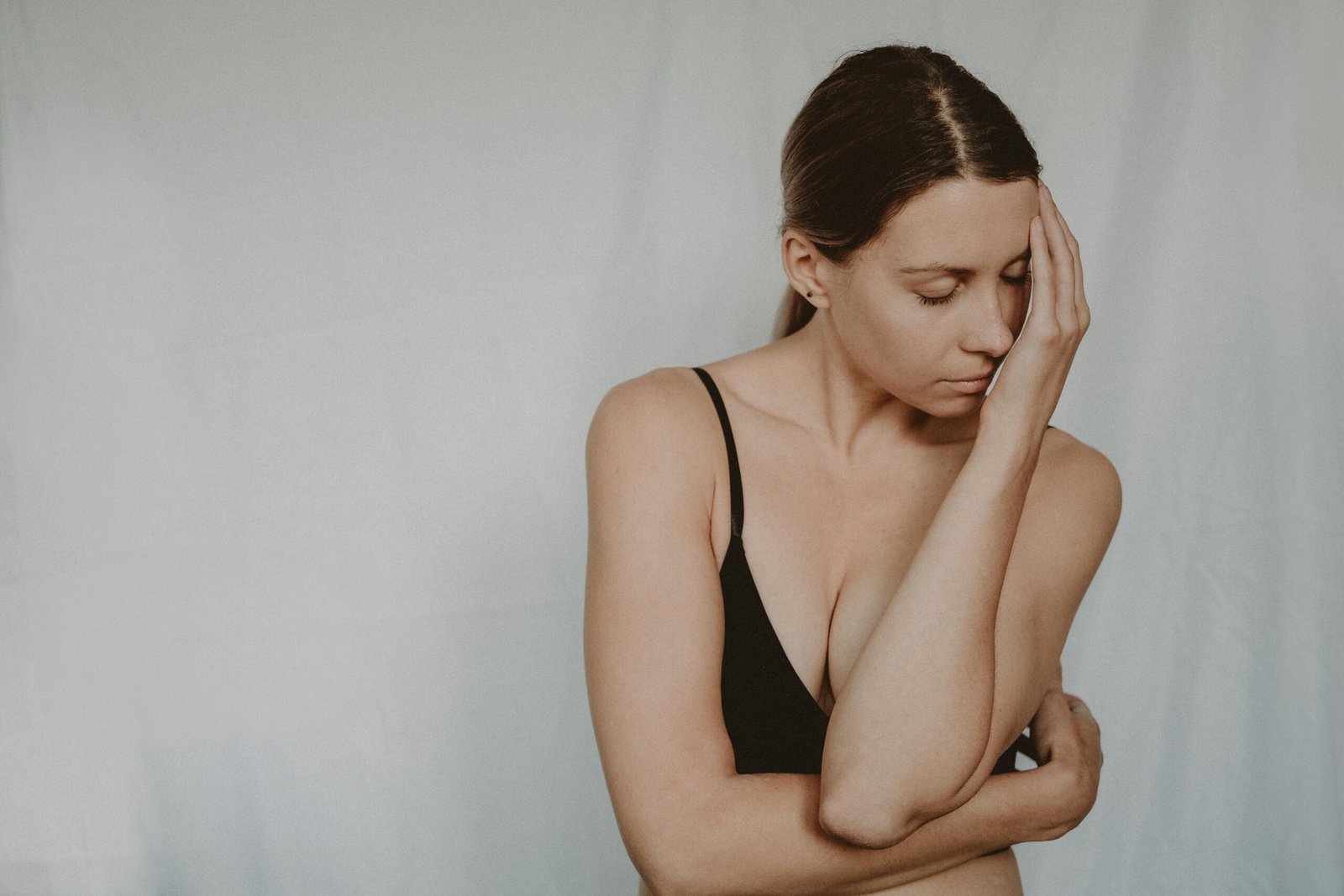
Have you ever woken up with a nagging pain in your left shoulder that seems to accompany you throughout the day? If so, you’re not alone. Left shoulder pain after sleeping is a common complaint that affects people of all ages. This discomfort can have a variety of causes, including poor sleeping posture, muscle imbalances, or even underlying health conditions. Thankfully, there are simple solutions to alleviate this discomfort and improve your quality of sleep. In this article, we will explore the causes behind left shoulder pain after sleeping and provide you with effective solutions to find relief. So, say goodbye to that morning ache and wake up feeling refreshed!

Causes for Left Shoulder Pain After Sleeping
Incorrect Sleeping Position
One of the primary reasons for left shoulder pain after sleeping is that you may be sleeping in an incorrect position. When you sleep with your shoulder compressed or placed in an awkward angle, it can lead to strain or discomfort in the area. Sleeping on your left side may aggravate the pain if you have underlying shoulder issues.
Muscle Imbalances
Muscle imbalances occur when certain muscles in the shoulder are weaker or tighter than others. This imbalance can put excessive pressure on certain areas, leading to pain and discomfort. Weak external rotator muscles or tight chest muscles, for example, can contribute to left shoulder pain after sleeping.
Inflammation
Inflammation in the shoulder joint can also cause pain, especially after a night of rest. Conditions such as tendinitis or bursitis can lead to inflammation, making it painful to move the shoulder after waking up. The inflammation may worsen when lying down, leading to discomfort upon waking up.
Arthritis
Shoulder arthritis, particularly in the left shoulder, can cause pain and stiffness after sleeping. The joint may become inflamed, leading to discomfort and limited mobility. Osteoarthritis or rheumatoid arthritis can both contribute to left shoulder pain after a night of rest.
Rotator Cuff Injury
The rotator cuff is a group of muscles and tendons that surround and stabilize the shoulder joint. If you have a rotator cuff injury, such as a tear or strain, the pain can be more severe after sleeping. Sleeping in a position that puts pressure on the affected area can worsen the pain.
Nerve Impingement
Nerve impingement occurs when a nerve in the shoulder becomes compressed or irritated. This can cause shooting pain or a pins-and-needles sensation that intensifies upon waking up. Sleeping in a way that exacerbates nerve impingement can lead to left shoulder pain.
Frozen Shoulder
Frozen shoulder, or adhesive capsulitis, is a condition that results in stiffness and pain in the shoulder joint. The pain can be particularly pronounced in the morning and after periods of rest, such as sleeping. The lack of movement during sleep can cause the shoulder to become stiffer, leading to increased pain upon waking up.
Poor Mattress or Pillow
The quality of your mattress and pillow can greatly influence your sleep quality and overall comfort. A worn-out or unsupportive mattress may not provide adequate cushioning for your shoulder, leading to increased pressure and discomfort. Similarly, an improper pillow that does not provide proper neck and shoulder alignment can contribute to left shoulder pain after sleeping.
Stress and Tension
Stress and tension can have a significant impact on your sleep quality and overall well-being. When you experience stress, your muscles tend to tense up, including the muscles in your shoulders. This increased muscle tension can lead to pain and discomfort, which may be more pronounced after sleeping.
Sleeping in Cold Temperatures
Sleeping in a cold room can cause your muscles to contract, leading to increased stiffness and discomfort in the shoulder upon waking up. Cold temperatures can also affect circulation, reducing blood flow to the muscles and joints. This lack of blood flow can contribute to pain in the left shoulder after a night of sleep.

Solutions for Left Shoulder Pain After Sleeping
Adjust Sleeping Position
To alleviate left shoulder pain after sleeping, it is essential to adjust your sleeping position. Experiment with different positions to find the one that offers the most comfort and support for your shoulder. You may benefit from sleeping on your back with a pillow supporting your arm, or utilizing a body pillow for added support.
Strengthening and Stretching Exercises
Engaging in strengthening and stretching exercises can help improve the stability and flexibility of your shoulder muscles. This can reduce the likelihood of muscle imbalances and alleviate left shoulder pain after sleeping. Consult with a healthcare professional or a physical therapist to determine the most suitable exercises for your specific condition.
Apply Heat or Cold Therapy
Utilizing heat or cold therapy can provide temporary relief for left shoulder pain. Applying a warm compress or taking a hot shower can relax the muscles and increase blood flow to the area, reducing discomfort. On the other hand, cold therapy using ice packs or cold compresses can help reduce inflammation and numb the area, providing pain relief.
Over-the-Counter Pain Medication
Over-the-counter pain medication, such as nonsteroidal anti-inflammatory drugs (NSAIDs), can be helpful in alleviating left shoulder pain after sleeping. These medications can reduce inflammation and provide temporary relief from discomfort. However, it is important to consult with a healthcare professional before taking any medication.
Physical Therapy
Physical therapy can be beneficial for addressing underlying shoulder issues and relieving left shoulder pain after sleeping. A physical therapist can design a personalized treatment plan, including exercises, stretches, and manual therapy techniques, to help improve your shoulder strength, flexibility, and overall function.
Massage Therapy
Massage therapy can help reduce muscle tension and promote relaxation in the shoulder area. A skilled massage therapist can target the specific muscles and soft tissues that may be contributing to your left shoulder pain after sleeping. Regular massage sessions can help relieve muscle imbalances and improve overall shoulder mobility.
Use a Proper Mattress and Pillow
Investing in a high-quality mattress and pillow that provide proper support is crucial in preventing left shoulder pain after sleeping. Look for a mattress that offers adequate cushioning without sagging and a pillow that keeps your head and neck properly aligned. Consider choosing a pillow specifically designed for shoulder pain relief.
Relaxation Techniques
Incorporating relaxation techniques into your bedtime routine can help reduce stress and tension in the shoulder area. Practices such as deep breathing, meditation, and gentle stretching before sleep can promote relaxation and improve sleep quality. Relaxing the body and mind can also minimize left shoulder pain after waking up.
Maintain Good Posture
Maintaining good posture throughout the day, including during sleep, can prevent unnecessary stress on the shoulders. Be mindful of your posture when sitting, standing, and lying down. Avoid slouching or hunching, as it can contribute to muscle imbalances and increase the risk of left shoulder pain after sleeping.
Keep Bedroom Warm
To minimize the impact of cold temperatures on your shoulder, ensure that your bedroom is comfortably warm. Use extra blankets or a heating pad to warm up the bed before sleeping. By maintaining a cozy and warm environment, you can reduce muscle stiffness and discomfort in the left shoulder upon waking up.
By identifying the causes for left shoulder pain after sleeping and implementing appropriate solutions, you can effectively manage and alleviate discomfort. Experiment with different strategies and consult with healthcare professionals as needed to find the best approach for your specific situation. Remember, prioritizing the health and well-being of your shoulder can lead to more restful nights and pain-free mornings.






